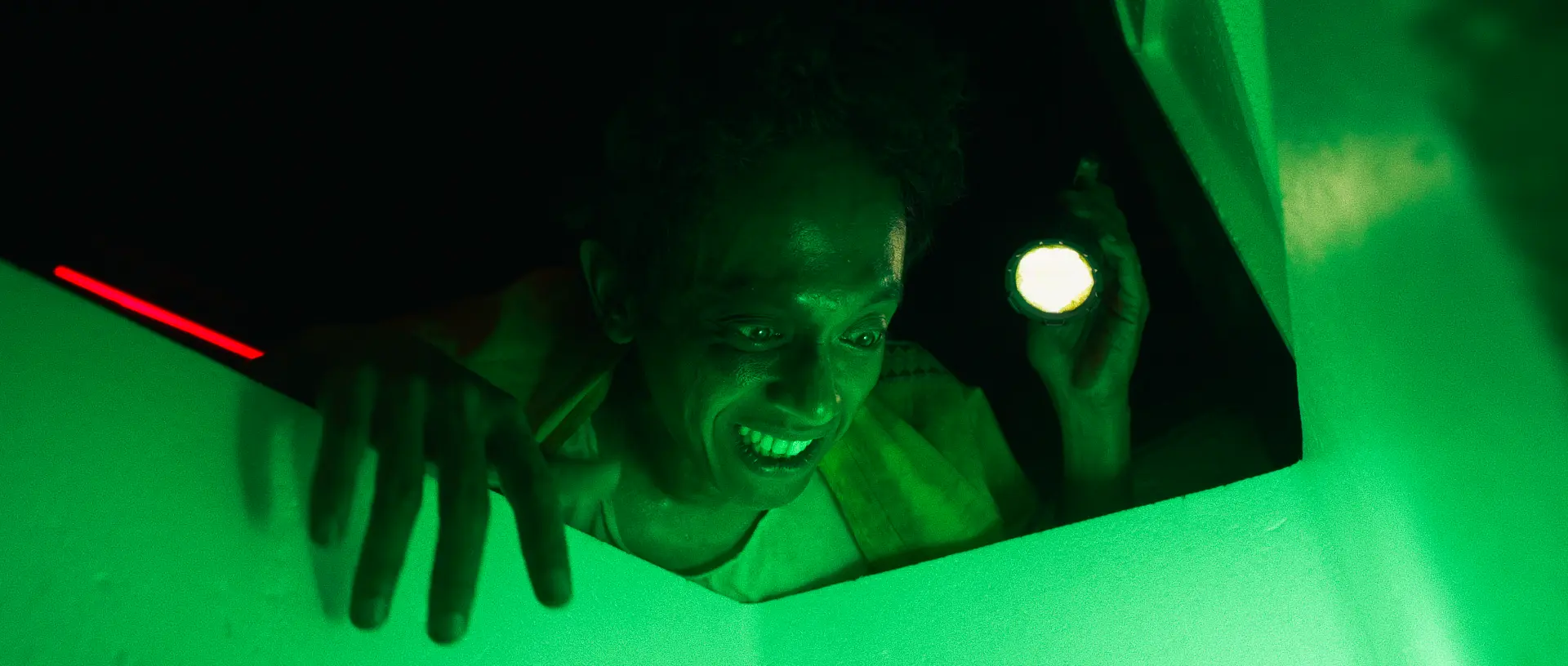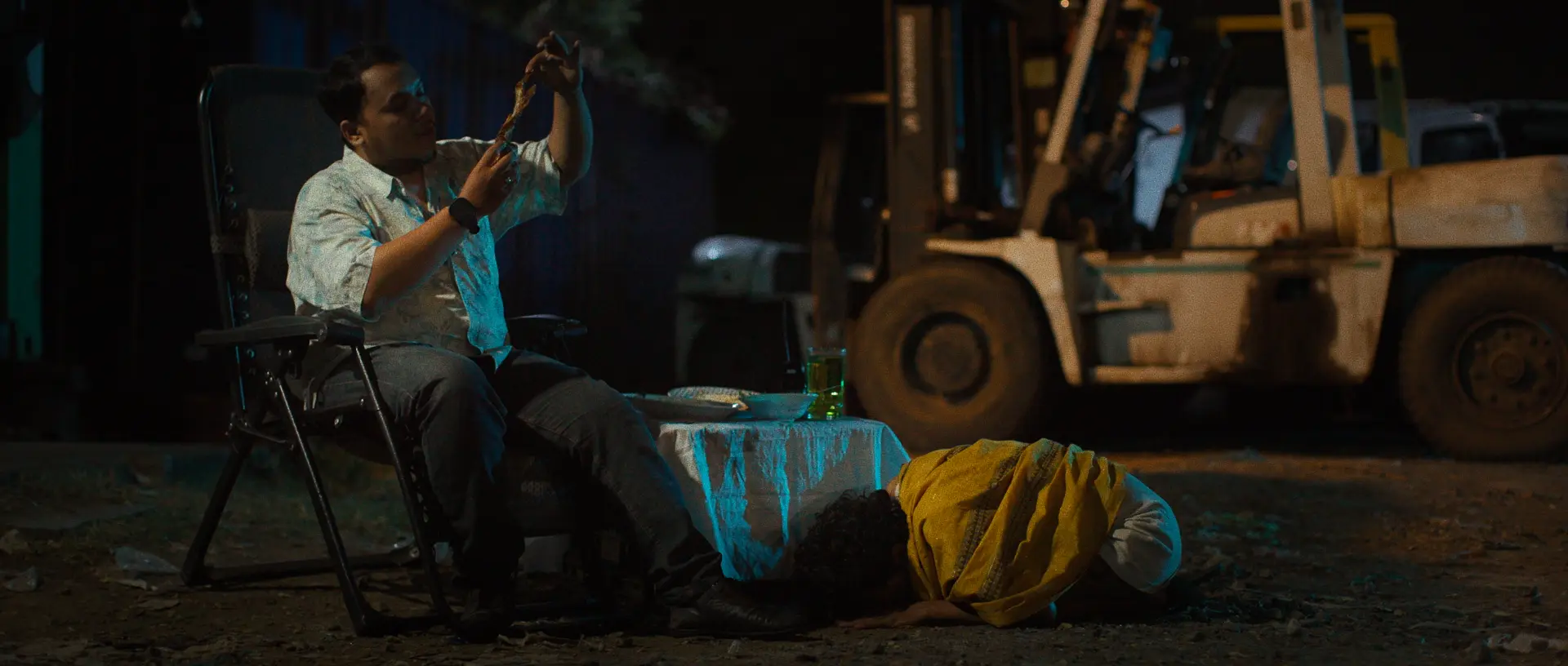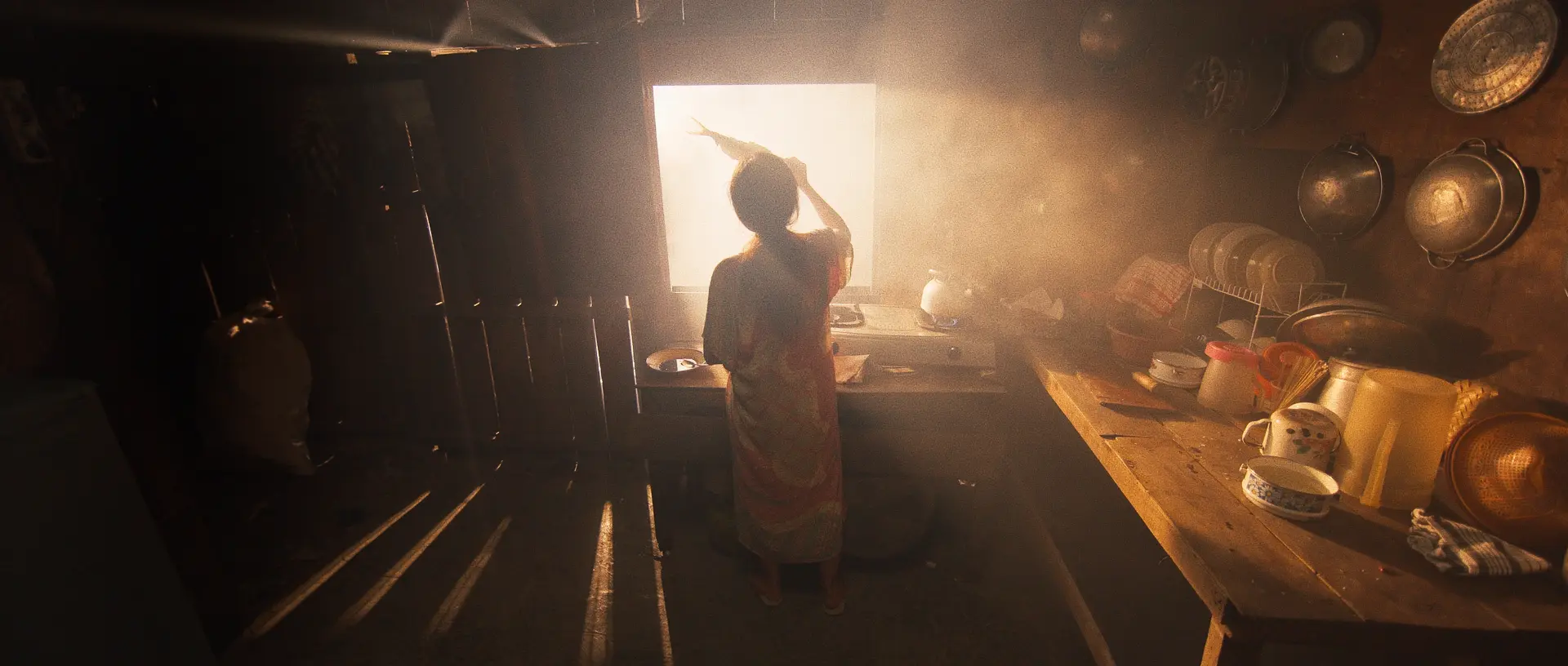Pelabuhan Berkabut (2024): A Chant of Fish from the Head of a Fish – Surviving Amid Food Injustice
- Majesti Anisa
A father is often seen as the bearer of the heaviest burdens within a household. He is expected to provide, to protect, and to endure life’s pressures to ensure the survival of his family. But what happens when the very system designed to support society actually obstructs a father’s ability to meet his family’s most basic needs such as access to nutritious food?
“Pelabuhan Berkabut”, directed by Haris Yuliyanto, tackles this issue with the symbolic metaphor of a fish’s head, representing both injustice and sacrifice within an imbalanced food system. This imbalance is a serious problem, where not everyone can access sufficient, nutritious, and affordable food. Some communities enjoy easy access to healthy meals, while others struggle to meet even the minimum dietary needs.
The film opens with a striking scene: three fathers at a security post hurriedly dividing a fish into three parts head, body, and tail. One of them protests upon receiving the head, the part with the least meat and the most bones. Most people avoid it. Just like a father, the head of the family who carries the weight of everything, yet often gets the least in return.
Rozaq, the film’s central character, embodies this burden. He is a father trapped in economic hardship, with a pregnant wife who needs the protein from fish to nourish both herself and their unborn child, and to prevent stunting. But access to nutritious food is blocked by the monopoly of fish middlemen. A midwife warns Rozaq of the dangers of malnutrition for his wife and baby, yet also forbids him from fishing at the harbor due to the risk of violence by the middlemen. This highlights the cruel dilemma faced by the poor, how even survival requires them to confront systemic violence.
Eventually, Rozaq chooses to steal fish from the middlemen. He knows the risk, but desperation pushes him forward. His act is not rebellion, but survival. Rozaq doesn’t protest or demand systemic change. He simply takes what should rightfully belong to his family. This kind of quiet resistance, an act of survival, should be a fundamental human right. Yet the system brands it as a crime. Instead of liberation, such acts only tighten the loop of oppression.
The film’s most surreal moment arrives when Rozaq discovers a group of fathers eating raw fish inside a ship, who then transform into fish themselves as a green fog rolls in. The fish once eaten by humans now consume humans in return. This eerie reversal critiques the exploitation of natural resources. While the poor scramble to steal fish to stay alive, the capitalist system driven by the fish middlemen turns them into part of the very chain of exploitation. The green gas may symbolize the toxic presence of capitalism, slowly eroding human dignity. The fathers who transform into fish could represent people who’ve lost their identity under the system’s pressure, while Rozaq becoming a fish-spirit hybrid is caught in limbo between man and commodified resource.
The film doesn’t offer heroic resistance, but reveals the bitter truth: in an unjust system, even the basic act of surviving can become self-sacrificial. “Pelabuhan Berkabut” remains painfully relevant in today’s reality, where monopolies and systemic inequality persist. It powerfully highlights the structural violence that forces people like Rozaq to steal fish merely to survive, only to be crushed by the very system that cornered them.
More than just critique, “Pelabuhan Berkabut” is a stark reminder: without systemic justice, the Rozaqs of the world will continue to be consumed by a merciless machine of exploitation.
Don’t miss Rozaq’s desperate cry fish, fish, fish in ‘Pelabuhan Berkabut’, screening as part of Layar Tandang: Semarang Sewon Screening 11!
By Majesti Anisa
Editor Satya Din Muhammad
Translator Debytha Nela Mv.





Comments • 0
Write your comment
Comments • 0